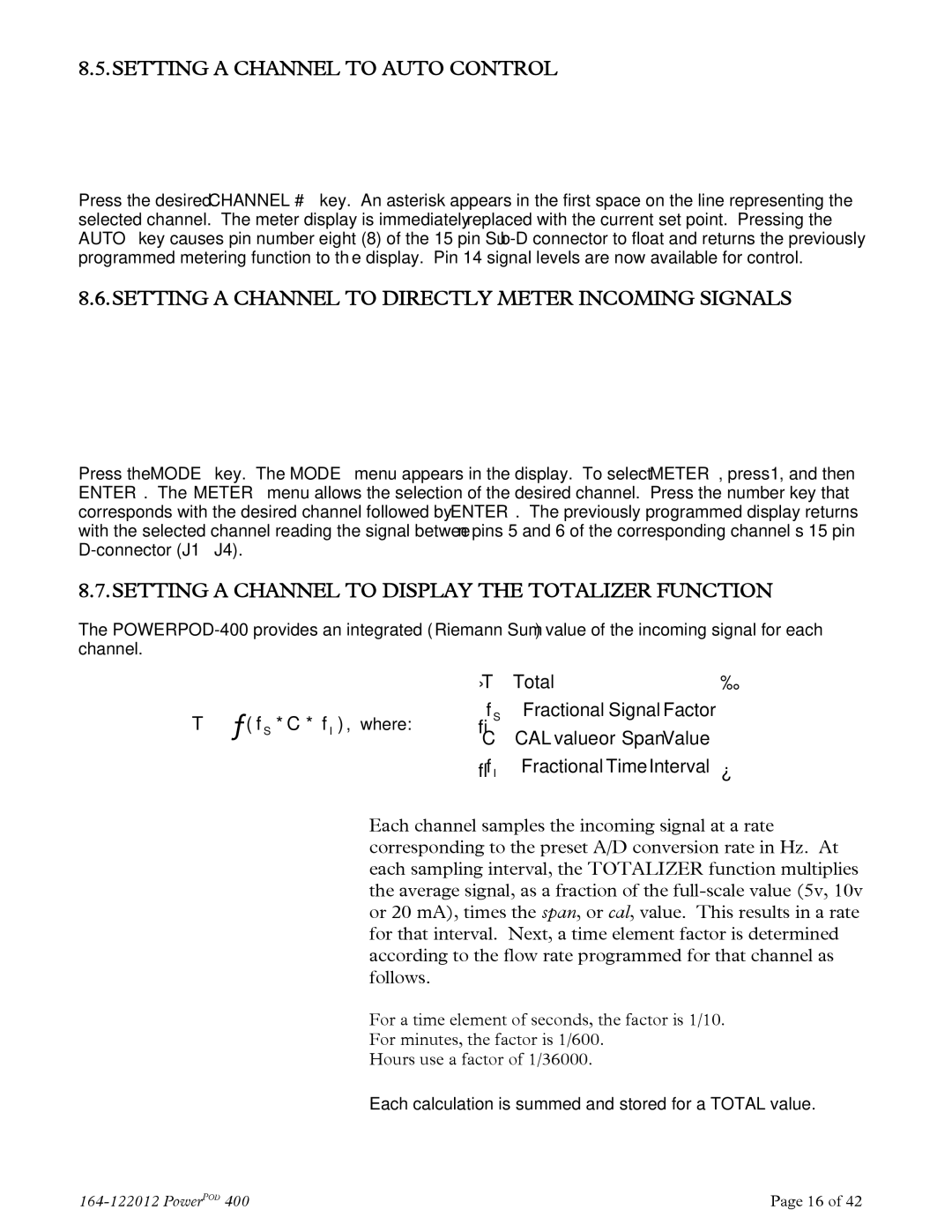
8.5.SETTING A CHANNEL TO AUTO CONTROL
Press the desired CHANNEL # key. An asterisk appears in the first space on the line representing the selected channel. The meter display is immediately replaced with the current set point. Pressing the AUTO key causes pin number eight (8) of the 15 pin
8.6.SETTING A CHANNEL TO DIRECTLY METER INCOMING SIGNALS
Press the MODE key. The MODE menu appears in the display. To select METER, press 1, and then ENTER. The METER menu allows the selection of the desired channel. Press the number key that corresponds with the desired channel followed by ENTER. The previously programmed display returns with the selected channel reading the signal between pins 5 and 6 of the corresponding channel’s 15 pin
8.7.SETTING A CHANNEL TO DISPLAY THE TOTALIZER FUNCTION
The
| ⎧T = Total | ⎫ | |
| ⎪ |
| ⎪ |
T = ∑( f S *C * f I ) , where: | ⎪ fS | = Fractional Signal Factor⎪ | |
⎨ | = CAL value or Span Value | ⎬ | |
| ⎪C | ⎪ | |
| ⎪ |
| ⎪ |
| ⎩ f I | = Fractional Time Interval ⎭ | |
Each channel samples the incoming signal at a rate corresponding to the preset A/D conversion rate in Hz. At each sampling interval, the TOTALIZER function multiplies the average signal, as a fraction of the
For a time element of seconds, the factor is 1/10.
For minutes, the factor is 1/600.
Hours use a factor of 1/36000.
Each calculation is summed and stored for a TOTAL value.
Page 16 of 42 |
